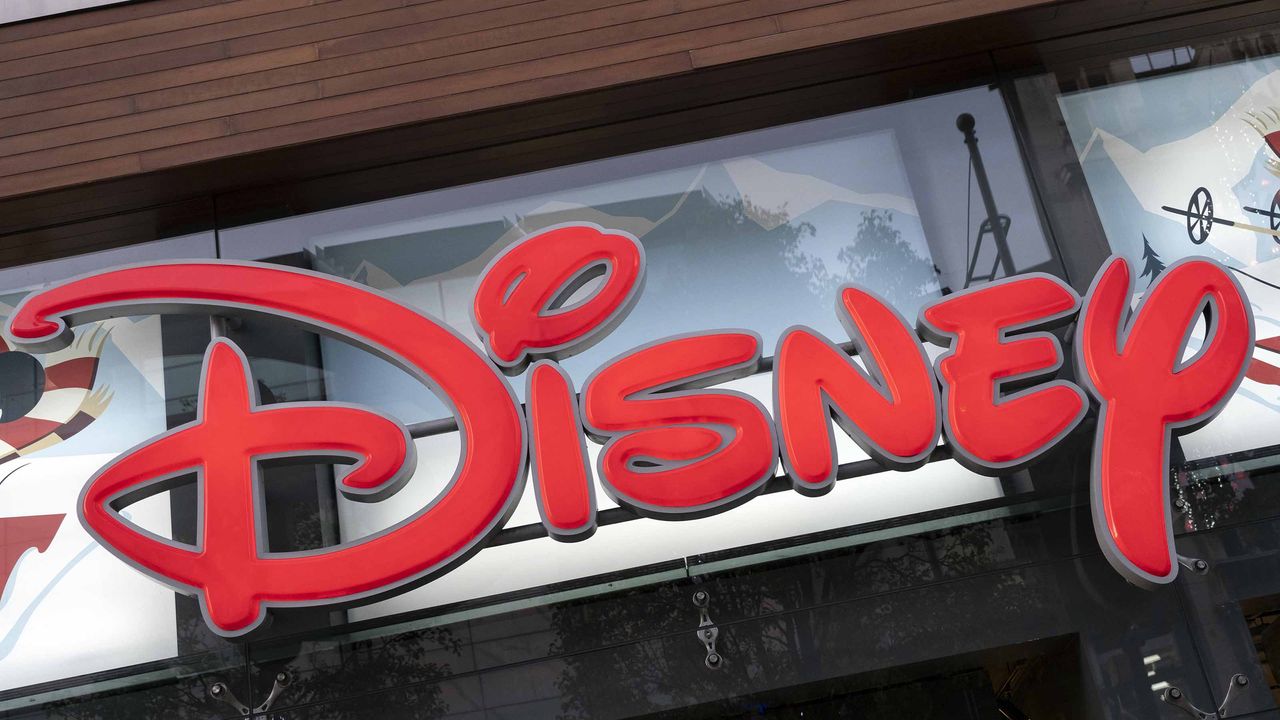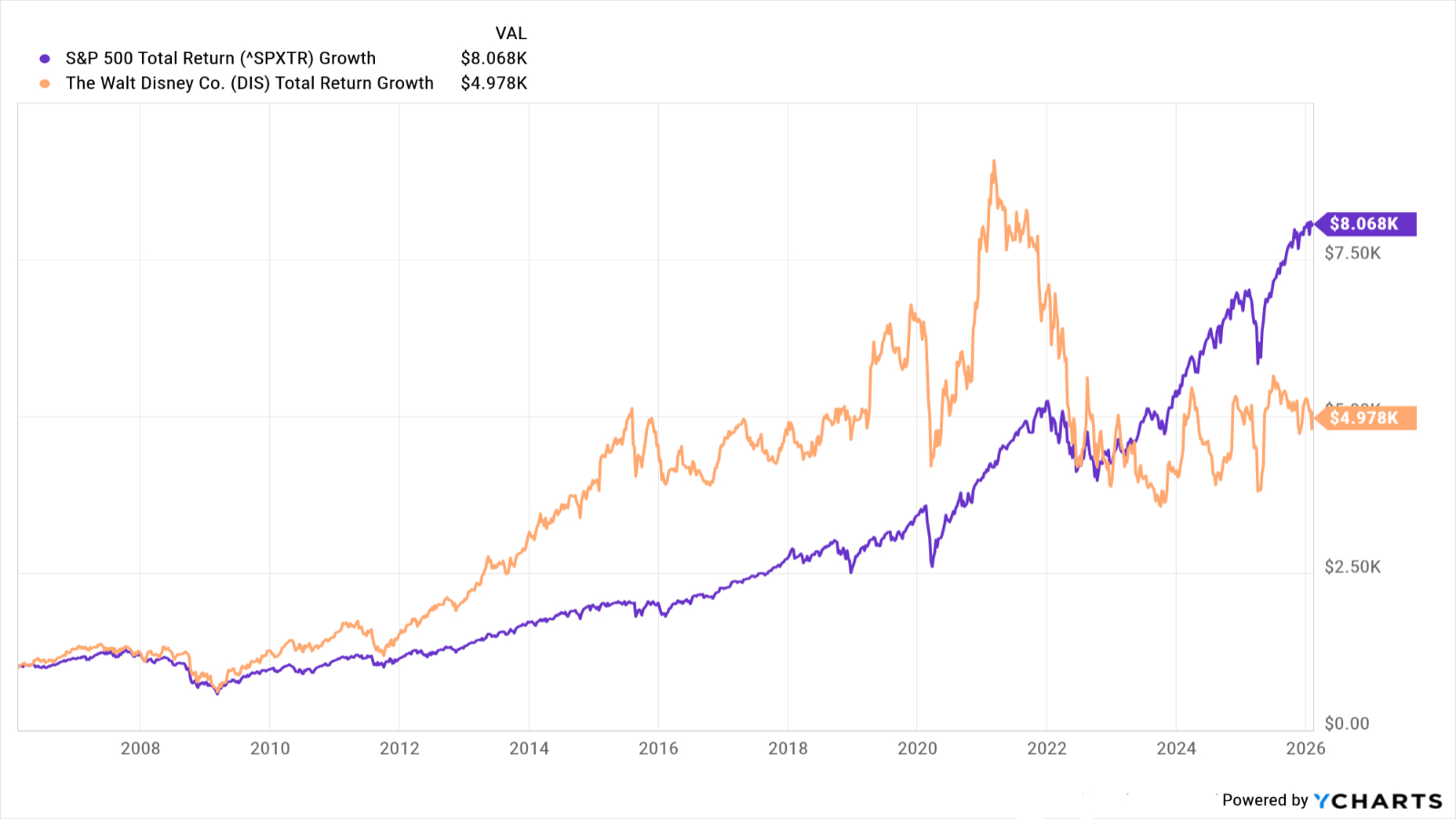
Walt Disney (DIS) stock is showing signs of life again vs the broader market, but long-term shareholders might be forgiven if they've grown impatient with their returns.
Disney stock is in the midst of a lost half-decade, trailing the broader market every year since 2021. Massive investments in streaming services finally eked out a small profit in 2024, but not enough to make up for declines in Disney's linear networks. Cord-cutting is gutting of cable subscriptions, undercutting once-reliable profit engines such as ESPN and ABC.
And while uncertainty about who would replace legendary CEO Bob Iger has been laid to rest – the board tapped Josh D'Amaro, who oversees the company's parks and resorts – it remains to be seen if the new executive team can address Disney's myriad challenges.
As bad as Disney's run has been in the post-pandemic era, it's not unusual when you pull back and look at the stock's long-term record. Trailing the market is what DIS does.
On an annualized total return basis (price change plus dividends), DIS comes up well short of the broader market over pretty much any standardized period you care to measure beyond the past year.
Everyone remembers how the pandemic clobbered Disney, whose theme parks and film businesses were epically exposed to COVID-19. Dividend investors certainly recall that the company suspended its payout in the early months of the outbreak to conserve cash.
Disney reinstated the dividend at the end of 2023. It was welcome news for income investors and certainly helped bolster the share price.
And the stock had a good run at the onset of the pandemic, with DIS shares more than doubling from March 2020 to March 2021, hitting an all-time high as a pandemic recovery play. At the top, Disney boasted a market cap of more than $366 billion.
What Disney shareholders would probably like to forget is that DIS is still far below its peak. Shares have lost nearly half their value since hitting a closing high back in March 2021, losing more than $180 billion in market value in the process.
To put such a sum in context, that's more than the market values of six of 30 Dow Jones stocks, including Salesforce (CRM), Honeywell International (HON) and Nike (NKE).
DIS was one of the 30 best stocks in the world over the three decades ended 2020. For long-term investors today, however, it's been a huge bust.
The bottom line on Disney stock
While it's true that you can manipulate historical returns by fussing with their beginning and end points, Disney's record vs the broader market over pretty much any standardized period you care to measure is terrible.
For its entire history as a publicly traded company, Disney stock has generated an annualized total return of 8.2%. That trails the S&P 500 by about 3 percentage points.

The past two decades have been only a little better for Disney, with shares returning 8.1% vs 10.9% for the broader market.
To get a sense of what this underperformance looks like on a brokerage statement, have a gander at the above chart. Note that if you put $1,000 into Disney stock 20 years ago, it would be worth about $5,000 today.
The same amount invested in the S&P 500 two decades ago would theoretically be good for about $8,000 today.
Disney shareholders expected more. If they feel those returns are disappointing, they are not wrong.
If there's a sliver of a silver lining for buy-and-hold Disney investors, at least Wall Street likes its chances of beating the market in the next 12 to 18 months.
Of the 32 analysts issuing opinions on DIS stock surveyed by S&P Global Market Intelligence, 21 rate it at Strong Buy, five say Buy, five have it a Hold, and one calls it a Strong Sell. That works out to a consensus recommendation of Buy, with strong conviction.







